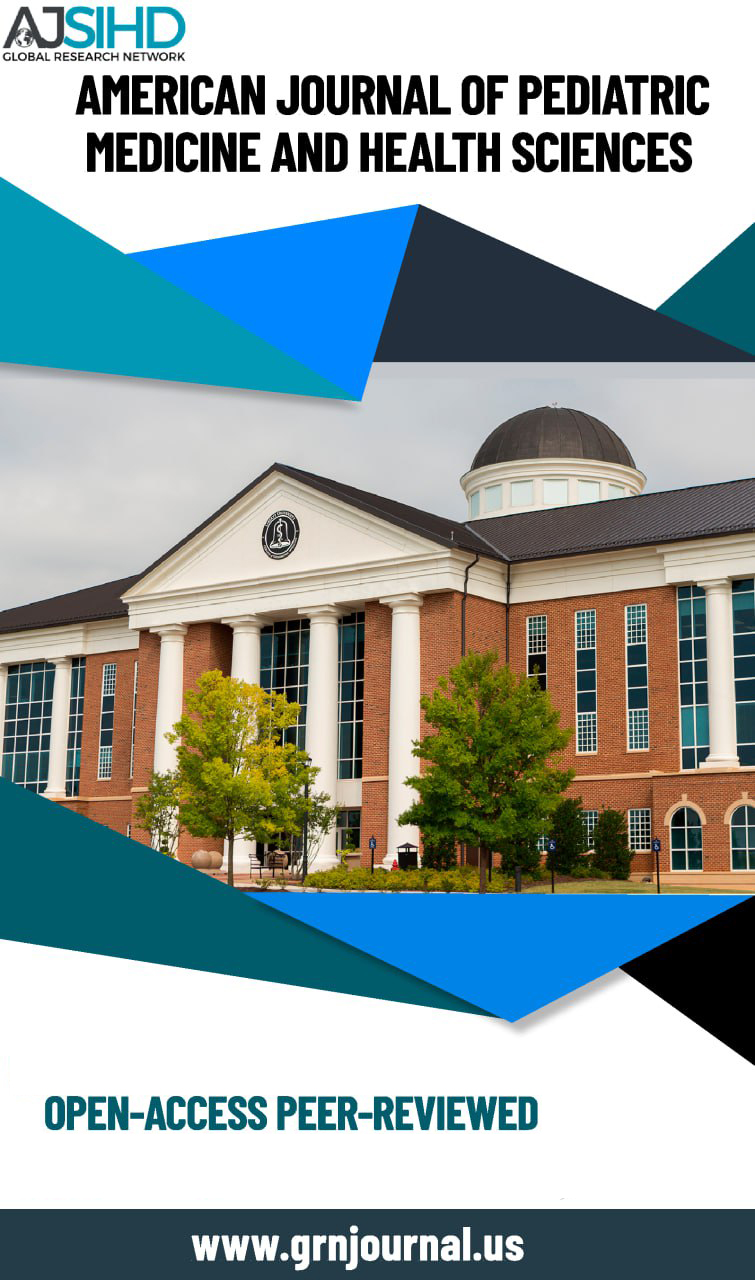Determinants of Intimate Partner Violence Among Women of Childbearing Age in Ibadan North Local Government Area, Oyo State, Nigeria
Keywords:
Intimate partner violence, socio-demographic factors, women of childbearing age, Ibadan North, psychological violenceAbstract
Introduction:
Intimate partner violence (IPV) is a global health issue that disproportionately affects women, particularly those of childbearing age. IPV includes physical, psychological, sexual, and financial abuse, which can lead to severe physical and mental health outcomes, including injury, depression, and even death. Globally, about 1 in 3 women experience IPV in their lifetime. In sub-Saharan Africa, cultural norms, economic instability, and low levels of female education contribute to the high prevalence of IPV. In Nigeria, socio-demographic factors such as ethnicity, education, income, and religious beliefs are known to influence the occurrence of IPV. Despite various interventions, IPV remains significantly underreported due to stigma, fear of retribution, and cultural acceptance of violence against women. Understanding the specific socio-demographic factors associated with IPV in local contexts, such as Ibadan North Local Government Area, is essential for developing effective prevention strategies.
Objective:
The objective of this study is to assess the prevalence of IPV among women of childbearing age and to examine the socio-demographic factors contributing to IPV in Ibadan North Local Government Area, Oyo State, Nigeria.
Method of Analysis:
A cross-sectional descriptive study was conducted among 351 women aged 18-49 years in Ibadan North Local Government Area. Data were collected through a structured questionnaire, which captured information on socio-demographic characteristics and experiences of IPV. The data were analyzed using SPSS version 23. Descriptive statistics were used to summarize the data, while chi-square and logistic regression analyses were performed to determine the association between socio-demographic factors and IPV prevalence.
Results:
The findings revealed that 70% of the respondents had experienced some form of IPV in their lifetime. The most common form of IPV was psychological violence, affecting 48% of the women, followed by financial abuse (44%), physical violence (35%), and sexual violence (27%). A significant relationship was found between IPV and several socio-demographic factors. Women with lower levels of education were 2.5 times more likely to experience IPV (p = 0.02), while those with lower income were 3 times more likely to report violence (p = 0.005). Additionally, ethnicity (p = 0.001) and religion (p = 0.03) were significantly associated with IPV, with women from minority ethnic groups and those practicing less dominant religions reporting higher instances of IPV. Although 80% of respondents were aware of IPV, only 30% sought help, citing fear of stigma and retaliation as major barriers.
Conclusion:
The study reveals a high prevalence of IPV among women in Ibadan North, with psychological violence being the most common form. Socio-demographic factors, particularly education level, income, ethnicity, and religion, play a significant role in determining the likelihood of experiencing IPV. These findings emphasize the need for targeted interventions, including public education campaigns, improved legal protection, and economic empowerment programs for women, to reduce the occurrence and impact of IPV. A multi-sectoral approach is essential to effectively address this pervasive issue.



